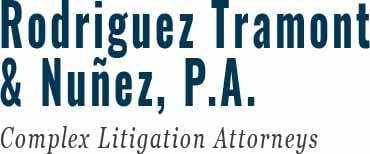Securities Concentration
Uncompensated Risk Of Catastrophic Loss
Financial advisors are required to disclose the risks associated with a particular investment or investment strategy for securities held with the brokerage firm. Any investment recommendation should consider the composition of securities held in an investment portfolio. Failure to recommend a strategy to manage the risks associated with securities concentration may be broker negligence and a violation of the securities industry minimum standard of care. An investor can maintain a concentrated portfolio for various reasons. A portfolio may have been concentrated as the result of one or more of the following reasons:
- Employee Stock Option Plan (ESOP) participant
- Stockbroker recommendation
- Founding member of publicly traded company
- Closely-held bank stock acquired through merger or acquisition
- Low-cost basis highly appreciated stock position
- Restricted Stock Rule 144 stock
- Corporate lock-up agreement
In some instances an investor might be restricted by an employer from selling stock, want to defer taxes, or have an attachment to the company shares. No matter what the reason for not selling a concentrated stock position, a financial advisor must recommend suitable risk management strategies to protect the value of the concentrated stock position.
Recent Failure To Diversify
In recent market turmoil, the bank and financial sector meltdown experienced the acquisition of Bear Stearns, the takeover of Merrill Lynch, the bankruptcy of Lehman Brothers and the conservatorship of Fannie Mae and Freddie Mac, while investor stock losses decimated the value of a lifetime of investment. Prudent investment advice warns against the concentration of investments into the banking and financial services sector of the economy. Portfolios concentrated in the following securities have suffered disproportionate losses to the overall stock market:
- Bank of America
- Citigroup
- Life Partners Holdings, Inc
- Popular, Inc
- Beazer Homes USA, Inc
- Medical Capital Notes
- YRC Worldwide
- Fannie Mae
- Ambac Financial Group
- Washington Mutual
- AMCORE Financial
- Irwin Financial
- Citizens First Bancorp
- Euro Bancshares
- Countrywide Financial
Investors who maintained a concentrated portfolio without investment advice to manage the risks of securities concentration may be able to recover their investment losses from unsuitable investment advice.
Frequently Asked Questions:
Q: Why is it unsuitable to concentrate my investments in the banking and financial services sector?
Q: What risk management strategies could have protected against these losses?
Q: How do I know if I have a viable claim and what steps do I take to file an arbitration claim?
Q: What duties and obligations do stockbrokers have to recommend diversification and implement a risk management strategies for concentrated positions on behalf of their clients?
Stockbrokers have many duties owed to their client, one of which is to only make suitable investment recommendations based on relevant facts concerning the client’s age, net worth, income, tax status and investment experience. When an account is concentrated, it is considered unsuitable and the only suitable recommendation is to implement risk management strategies to protect the value of the concentrated position. Since brokerage firms are required to supervise the activities in brokerage accounts, losses from securities concentration can be attributed to the failure to adequately supervise the stockbroker and the brokerage account. Brokerage firms are obligated and investors are entitled to rely upon brokerage firms for competent, professional investment services in accordance with the Financial Industry Regulatory Authority (FINRA) Rules and Regulations.
Q: Why is it unsuitable to concentrate my investments in the banking and financial services sector?
Investors control portfolio risk through diversification which reduces diversifiable risk. This diversifiable risk is also known as business risk which is the risk specific to a particular business industry, such as a bank’s exposure to sub-prime loan losses and auction rate securities losses. When a portfolio is considered non-diversified there is an increased exposure to a specific security or sector of the economy. It is this concentrated exposure to the banking and financial services sector which has led to the catastrophic losses.
Q: What if a concentrated stock position was maintained and certain constraints precluded diversification as an option?
Many concentrated stock positions are held by investors as the result of situations such as Rule 144 corporate stock grants, employee stock options, tax-related objectives, or any number of considerations. Each risk management strategy is designed to protect the value of the concentrated stock position with a different tax issue and opportunity cost associated with the different strategies. Unless the stockbroker can document that risk management strategies were recommended, there is a potential claim for negligence and a failure to supervise the activities in the account.
Q: What risk management strategies could have protected against these losses?
The following risk management strategies are widely known and can represent suitable investment advice for an investor with a concentrated portfolio. The risk management strategies below are available through Wall Street brokerage firms:
- Stop Loss Limit Orders
- Short Sales
- Covered Calls
- Protective Puts
- Zero-Cost Option Collars
- Variable Prepaid Forward Contracts
- Equity Swaps
- Exchange Funds
Q: What if the concentrated stock position had a low tax cost basis and there is no tax loss? Could I still have a claim?
Whether a security has a low tax cost basis has no bearing on damage calculations which measure the decline of value in the brokerage account, over the relevant time period. This calculation measures the change in the value of securities over a relevant time period which is based on case facts that determine damages. The relevant time period could include the period after a client asks whether a position should be sold or perhaps a supervisory report which was generated after a decline in value had occurred. In these instances, tax cost basis would have no bearing on the theory of damages.
Q: How do I know if I have a viable claim and what steps do I take to file an arbitration claim?
Take the following steps to begin the recovery of your investment losses:
- Contact our legal team to complete a case facts summary
- Schedule a time for an interview with an industry expert
- Gather critical case documents
- Complete risk tolerance assessment
- Assess account damages and financial adviser misconduct
- File statement of claim for securities arbitration

